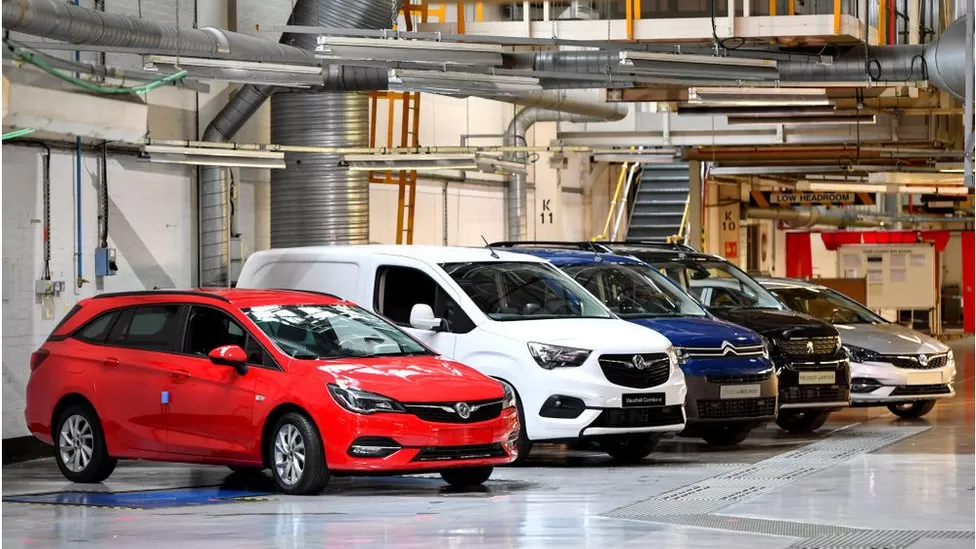Stellantis, one of the world’s largest carmakers and the manufacturer of Vauxhall, Peugeot, Citroen, and Fiat, has urged the UK government to revisit certain aspects of the Brexit deal to prevent potential losses in the country’s car industry. Stellantis had previously committed to producing electric vehicles in the UK but now finds it challenging to comply with Brexit trade regulations concerning the sourcing of car parts.
The UK government responded, emphasizing its determination to maintain competitiveness in car manufacturing. Stellantis, which produces electric vans at its factory in Ellesmere Port, Cheshire, called for an agreement between the UK and the EU to maintain the existing rules until 2027. It also requested a review of the arrangements for manufacturing parts in Serbia and Morocco.
Just two years ago, Stellantis had assured the security of its Ellesmere Port and Luton plants. However, the company now seeks to renegotiate aspects of the Brexit deal due to the perceived threats to its export business and the sustainability of its UK manufacturing operations. Stellantis submitted its concerns to a parliamentary inquiry on electric car production, stating that its investments in the UK were based on meeting the stringent terms of the post-Brexit free trade agreement.
According to the rules of origin outlined in the agreement, starting from next year, 45% of the value of an electric car must originate from the UK or EU to qualify for tariff-free trade. Stellantis explained that it is currently unable to meet these rules due to the increased costs of raw materials during the pandemic and the energy crisis. Failure to reach an agreement to maintain the current rules until 2027 would subject trade between the UK and EU to 10% tariffs, rendering domestic production and exports uncompetitive compared to countries like Japan and South Korea.
Stellantis emphasized the need for the UK to reconsider its trading arrangements with Europe to ensure the sustainability of its manufacturing plants. The UK government acknowledged these concerns and stated that Business and Trade Secretary Kemi Badenoch has raised the matter with the EU. The government has also established a fund to develop the electric vehicle supply chain and intends to take decisive action to encourage future investment in zero-emission vehicle manufacturing.
The implications of uncompetitive electric vehicle costs could result in manufacturers refraining from investing in the UK and relocating their operations outside the country. The Stellantis document cited examples such as Ford, BMW’s electric Mini, and Honda’s investment in the US after closing its UK site in Swindon. The primary challenge lies in the absence of battery plants and a domestic supply chain in the UK, which should be prioritized to capitalize on the increasing investments in the global market for electric vehicles.
The concern within the industry is that the UK is missing out on a significant wave of investment related to the electrification of cars, with the US, China, and the EU heavily subsidizing this sector. French President Emmanuel Macron recently hosted Tesla’s Elon Musk, who hinted at a potential gigafactory investment in France. The Spanish government is also actively pursuing the owners of Jaguar Land Rover to secure a gigafactory that was previously expected to be built in the UK.
Industry experts emphasize the urgent need to establish battery manufacturing in the UK. Failing to do so would result in the loss of approximately 800,000 jobs associated with the car industry. Without large-scale battery production, it would be challenging for the UK to sustain a mass car industry. Some experts argue that while the UK government desires a gigafactory in the country, there is a lack of comprehensive industrial policy to support this goal.
Although the Brexit trade agreement allows for a phased introduction of strict rules on the origin of electric vehicle parts, insiders believe that UK exporters will face difficulties exporting cars tariff-free from 2027 without domestic battery production


